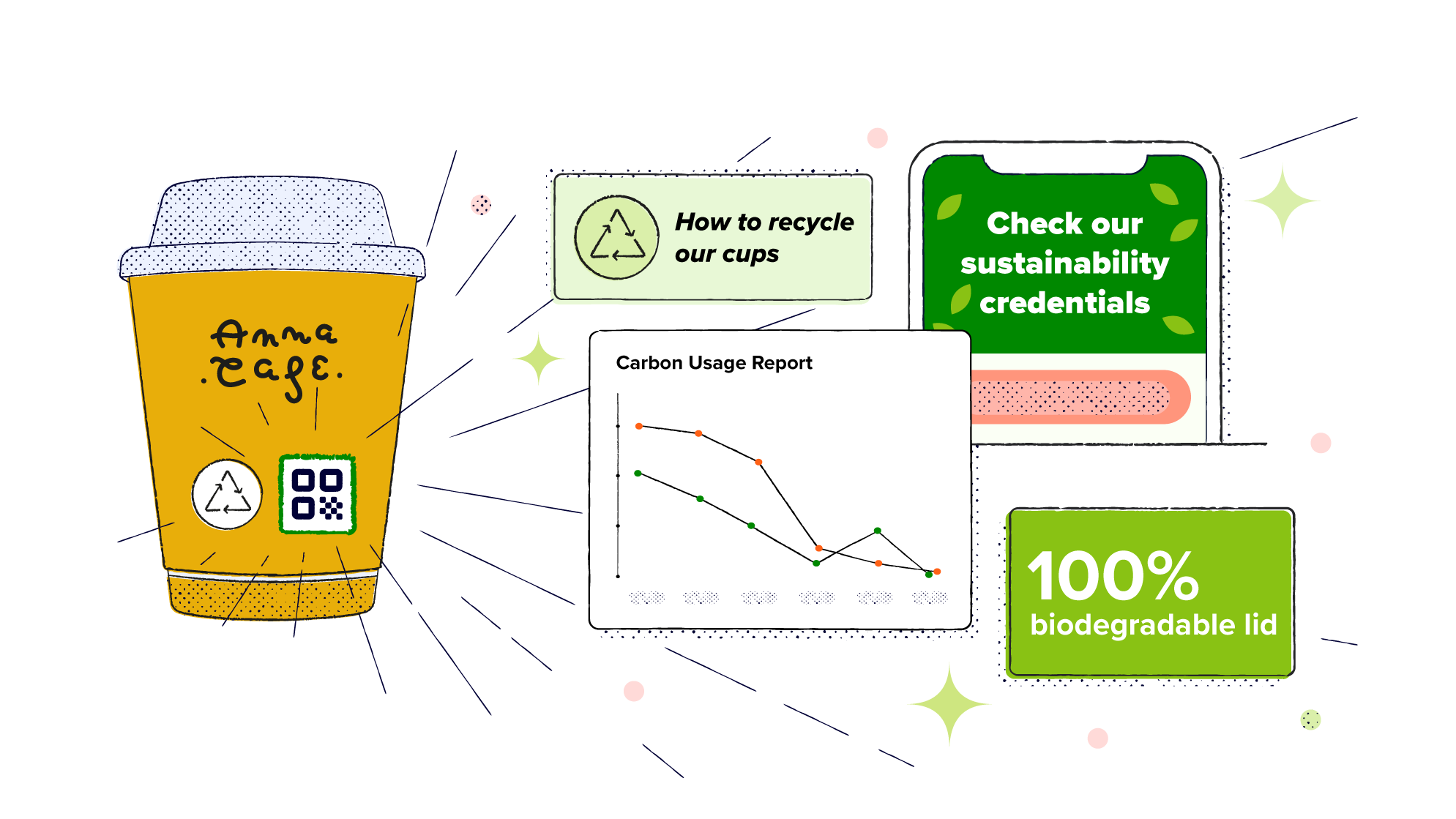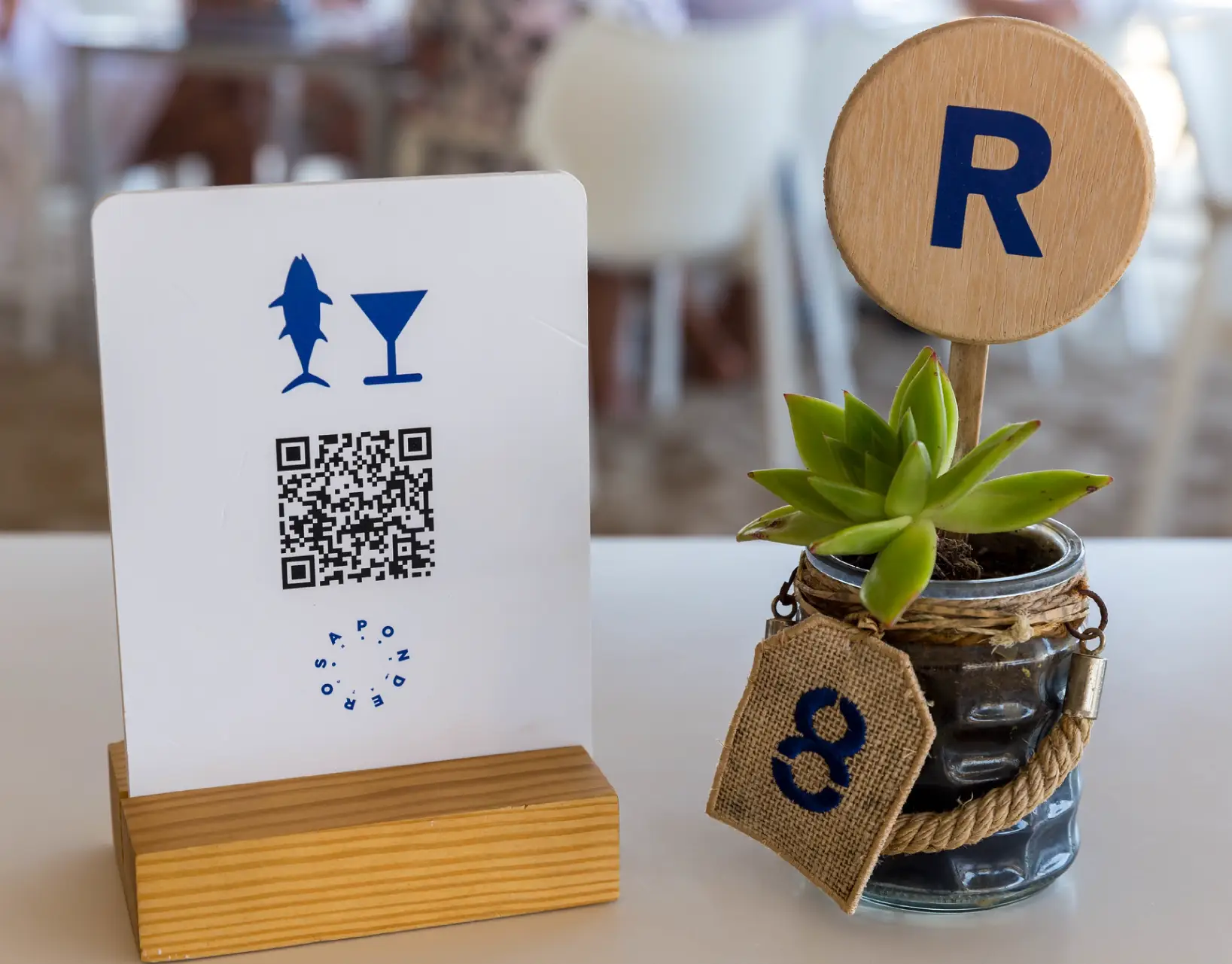
So your guests are planning their dream trip to stay with you. Booked a luxurious room? Check. Reserved their visit to the spa? Check. Did you feel a wave of relaxation just looking at pictures of the pool? Double check. But even while travelers are planning a getaway, their values don’t go on vacation—and that includes their desire for sustainable, eco-friendly practices in every part of life.
Travelers and tourists don’t just hope for sustainability in the destinations they visit anymore. They actively seek out eco-conscious places to travel, eat, sleep, and stay because those brands work to limit their carbon footprints—and they spend their time and money accordingly. Sustainable practices on property at hotels and resorts are no longer nice-to-haves; they’re essentials.
Read on to learn how and why this tide has shifted, the role tech plays in greener hospitality, and how you can fold eco-friendly practices into every stay.
Sustainability shifts and industry impact
When you ask most people to describe their dream vacation, they might tell you about pristine mountain views or blue waters so clear you can see the ocean floor. To protect these paradises and their ecosystems, limiting our carbon footprints needs to be a top priority and a present reality—for individuals, yes, but especially for brands.
Research finds that the hotel industry contributes 1% of global carbon dioxide emissions. While that number may not sound high, those 363 million tons of carbon dioxide could power 45.7 million homes per year. What’s more, the hospitality industry continues to grow year after year—which means additional emissions. As a result, research from the Sustainable Hospitality Alliance concluded that hotels will need to reduce emissions by 66% per room by 2030 and 90% by 2050 to avoid increasing carbon emissions as an industry in the coming years. Hospitality as a whole will need to take even more drastic sustainability measures to actively reduce the drastic (and fast-approaching) effects of climate change.

If this seems like a daunting prospect, you’re not alone. Everyone—not just in hospitality, but across every industry—has a part to play in adopting sustainable practices to reduce waste and emissions.
The high stakes of climate change aren’t the only incentive for hotels, resorts, and destinations to become more eco-friendly, though. According to Expedia Group, 90% of consumers seek out sustainable options while traveling, and half of consumers are willing to pay more for these sustainable options.
Travelers are putting cash behind their commitment to limiting the carbon footprint of their vacations. This means that hotels and resorts don’t just have an ethical responsibility to go green—sustainability affects the bottom line, too.
Tech as the secret sauce for sustainability
Plenty of the changes that hospitality brands need to make for greater sustainability will be major infrastructural changes like choosing greener energy sources and designing eco-friendly buildings. In recent years, major hotel brands like Marriott and Hilton have also made sustainable choices like moving to refillable toiletries instead of small, single-use soap bottles and carbon labeling food options.
But hotels can also use technology to bring to life immediate, impactful changes that reinforce sustainability with their guests.
As hotels move toward greener practices (and as guests see day-to-day changes during their stay), properties will need new channels to provide information, engage and inform guests, and invite them to be a part of greener hospitality. This is where channels like QR Codes and short links come in—they can save the day by streamlining eco-friendly operations and guest interactions. They also offer in-depth data on when guests are scanning or clicking, so you can more effectively reach your entire audience.
From check-in to guest rooms to transportation, these tools give guests simple, accessible ways to learn about and be a part of more eco-friendly travel.
A 2022 study found that 75% of travelers consider their smartphone their number one travel accessory—and unsurprisingly, 97% said they used their smartphones on their most recent trip. Guests use their phones constantly on your property to snap photos, research the destination, and confirm the details of their next excursion. Since their smartphones are never far away, why not offer resources that engage them in eco-friendly practices via channels they can access instantly from their phones?
Use QR Codes and short links across your property to help guests take an active role in going green—even while they’re kicking back and relaxing.
4 ways tech can help hospitality go greener
Every eco-friendly decision, large and small, makes a difference. To bring to life a more sustainable hospitality industry, hotels, and resorts have to make changes and help their guests get on board.
QR Codes and short links let you connect and engage guests in going green before, during, and after their stays—here are four strategies you can use to do it.
1. Educate travelers
From their confirmation email after booking to the lobby when they arrive, give guests multiple chances to learn about the steps your brand and property are taking to reduce emissions and limit your environmental impact.
Consumers are keenly aware of how major brands can “greenwash”—misleading people about their sustainability or overestimating their efforts. The more transparent you are about your carbon footprint and the impact of your environmental efforts, the more guests will trust you—and the more likely they’ll be to book again.
Provide short links in emails and on your website and QR Codes on-property that share details about the steps you’re taking to adopt more sustainable practices, both as a location and as a brand. Tell a story about the local environment and how you’re conserving wildlife, planting trees, or donating to climate initiatives that benefit the community. Plus, let guests know how they can be a part of these efforts, both during and after their stay.

2. End the use of printed materials
Historically, hotel guests received numerous printouts throughout their stays—from bills and receipts to forms and waivers. Over time, the paper and ink involved with using printed materials for any interaction or information exchange add up, in both waste and additional cost to your operation.
Go green by turning these printed materials into digital connections:
- Create a dynamic QR Code to share menus straight from the table and instantly update your restaurant offerings online. Do the same with room service and spa menus.
- Offer a QR Code to download your brand’s app so guests can view their bills and receipts from their phone instead of a printout.
- Instead of repeatedly updating printed in-room materials with on-property amenities or on-demand entertainment, share a branded short link and update it over time.
Identify each place where printed materials show up throughout every stay, and reduce your carbon footprint by engaging guests with online touchpoints instead.
3. Encourage and incentivize greener options
From single-use plastics to frequent linen replacements, guests have plenty of opportunities to choose between conserving and convenience (which often leads to waste).
Here are a few key ways that hospitality brands can help travelers choose more sustainable options during their stays:
- Help guests save water by sharing a QR Code with information about limiting housekeeping visits, reusing their towels throughout their stay, or taking shorter showers. Share the impact of these sustainable choices and even offer a small perk to thank them, like a complimentary breakfast or a gift shop voucher. You can also offer resources to explain changes like shifting from small, single-use toiletry bottles to large, refillable containers that reduce plastic waste.
- Guide guests to choose greener transportation options while on the property. Instead of renting a car or calling a ride service, they can scan a QR Code to book a shared vehicle or carpool at designated times and limit car trips and emissions.
- Share a short link at the front desk to set up touch-free check-in and room access from their phone during their stay, reducing the use of plastic room keys.
- Send an email before guests check in with a short link to remind them of items they can bring to be more sustainable during their stay—their favorite reusable water bottle or even a to-go container to reduce food waste and single-use styrofoam.
Each of these choices adds up to an all-around greener property. Plus, you can inspire guests to make more eco-friendly decisions, even after they go home.
4. Engage guests around sustainability
Make sustainability a conversation that guests are excited to engage in. Connect with them after their stay by sharing an annual sustainability report via short link—this lets sustainability-minded consumers feel like a part of making a positive climate impact.
Go even further with guest engagement by opening sustainability feedback mechanisms—send an SMS message with a short link asking them for their ideas for how you can become greener on property. They might make observations as a guest that your team can’t see during their day-to-day operations. Brands that co-create sustainability in partnership with what their customers want and need build transparency and trust that leads to a lasting relationship and loyalty.

The power of making every stay sustainable
Contributing to a greener, healthier planet is one of the most important ways for brands to give back—now and for the generations to come. And while your guests are excited to relax and reset during their stays, they also want to make a positive impact on the world around them.
In the hospitality industry, sustainable practices are no longer “above and beyond”—they’re an urgent and essential priority for your brand and your guests. One of the few things that we all share is the planet we call home, so treat sustainability as a key connection point at every stage of your guests’ stay for not only better service but a better world.